Code of Practice 9 Investigations - Our Complete Guide
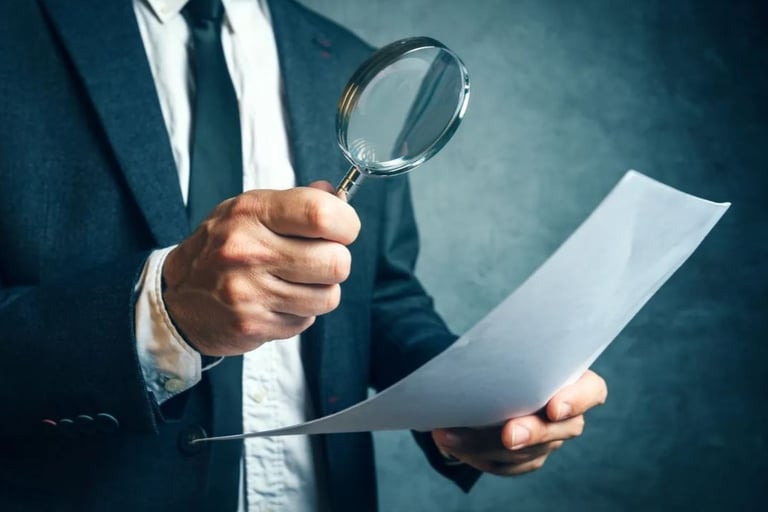

Call: 0800 0016 878 - Email: info@thetaxfaculty.co.uk
(Non-UK callers may need to call +44 207 101 3845 if you cannot connect to our 0800 number)
Facing a Code of Practice 9 (COP9) investigation by HMRC can be daunting. These investigations target suspected tax fraud and require a thorough understanding of the process.
Our guide provides detailed insights into what COP9 entails, how it differs from other HMRC enquiries, and the steps you need to take to respond effectively.
Whether you're considering voluntary disclosure or have received a COP9 letter from HMRC, our team of experts is here to help you navigate this complex landscape and ensure compliance.
HMRC have the authority to conduct an investigation into the tax affairs of an individual in order to ensure that they are paying the correct amount of tax based on the law governing UK taxes at the time.
These investigations, enquiries or checks (call them what you may – we’ll simply use the term “investigation” for the rest of this guide) can take on many different forms depending on the seriousness of the circumstances which lead to the opening of the investigation.
HMRC have the power to conduct criminal investigations with a view to prosecution for the most serious cases where they suspect that tax fraud has taken place. These prosecutions, if successful, may result in the individual who is found guilty of the tax fraud being sentenced to time in prison, as well as having to pay the tax, interest and a large tax-based penalty to HMRC.
A Code of Practice 9 investigation is seen as the highest level of investigation that HMRC conduct that is not a criminal investigation.
These investigations can only be conducted by an HMRC inspector who has been trained specifically to work through a Code of Practice 9 investigation as part of a team with the Fraud Investigation Service.
By sending opening correspondence to an individual whom they suspect of committing tax fraud, HMRC are making that individual a one time only “offer”. The offer that HMRC make is the chance for the individual to make a full disclosure of all tax fraud that they have committed in exchange for protection against criminal prosecution.
In other words, if the individual tells HMRC everything that they have deliberately done in order to pay less tax than they should, HMRC agree not to seek a criminal prosecution against that person for those actions.
An important word here is the word “deliberate”. HMRC may remind you that “you cannot commit tax fraud accidentally”, meaning that there must have been an intention on the part of the individual to either file an incorrect tax return or choose not to tell HMRC of a tax liability that they knew existed.
1. INTRODUCTION TO CODE OF PRACTICE 9 INVESTIGATIONS


There are usually two ways in which a Code of Practice 9 investigation will commence. Firstly, such an investigation may occur as the result of an individual voluntarily disclosing to HMRC the fact that they have committed tax fraud.
There are many reasons that someone may choose to voluntarily disclose such actions to HMRC. Whatever the reason may be, the outcome is the same: HMRC will review the initial request to disclose the fraud and if they feel that this route is acceptable, they will issue the Code of Practice 9 opening correspondence to the individual so that they may start the process of entering into the Contractual Disclosure Facility.
Secondly, HMRC may decide to issue the Code of Practice 9 opening correspondence directly to the individual without warning. This is HMRC’s statement of intent to investigate that individual as they suspect that the individual has committed tax fraud.
Before they send out this opening correspondence, fully trained inspectors within HMRC will have conducted extensive research into the individual in question. This research will include the entirety of that individual’s tax affairs, so you can be sure that this is not a “phishing” exercise being conducted by HMRC.
This may include anything that the individual has done themselves or as a sole trader, as well as the tax affairs of any other entities such as companies, trusts, nominees, or partnerships that they have been involved in.
HMRC can also look back at the individual’s tax affairs over the last 20 years, as they have the power to assess and recover any unpaid tax liabilities going back that far if the actions taken which resulted in the liability not being paid were deliberate.
It is no wonder that a Code of Practice 9 investigation is considered one of the most intrusive forms of enquiry that HMRC can conduct.
As noted earlier, for HMRC to open a Code of Practice 9 investigation, they must have a suspicion that the individual has committed tax fraud. If they cannot reasonably demonstrate that they suspect an individual of tax fraud, they would not issue the Code of Practice 9 opening correspondence.
We always make a point to note that the word “suspicion” is important here. It does not necessarily mean that the research that was completed prior to issuing the individual with the opening correspondence provides HMRC with nailed on, 100% undeniable evidence that the individual has committed tax fraud.
HMRC themselves state in the Code of Practice 9 booklet that “We will keep an open mind to the possibility that there may be an innocent explanation for the suspected fraud, and we will treat you fairly and politely, and in accordance with the law.”
When choosing the rejection route, we are always sure to remind the HMRC inspectors dealing with the investigation of this commitment.
2. Ways in Which a COP 9 Investigation May Begin
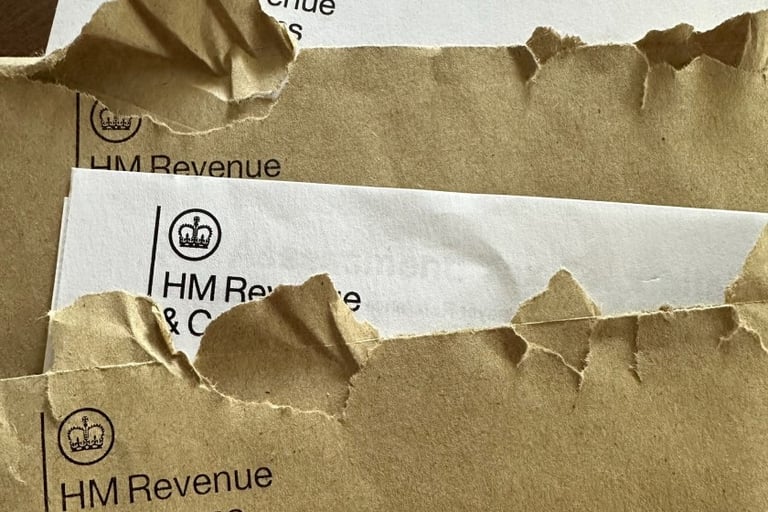

At this stage, before the individual chooses whether to accept or reject the offer, it is highly recommended that the individual appoints a specialist adviser, in addition to their usual tax filing accountant.
HMRC themselves recommend this course of action as part of the first page of the Code of Practice 9 booklet that they provide with the opening correspondence, stating that:
“You are strongly advised to seek independent professional advice. If you already have an appointed adviser you should contact them immediately. However, many people find it helpful to appoint a specialist adviser who is familiar with COP9, as well as their regular adviser.”
The main reason for this recommendation is relatively simple. The individual relies on their existing tax filing accountant due to their area of expertise, being the preparation of accounts and filing of tax returns, which is what they have been trained to do and have extensive experience in doing.
Most accountants however will not be trained, qualified or experienced in dealing with complex tax investigations. In fact, many do not want to do this work and would be much more comfortable having a specialist to assist in such areas.
It is therefore in all parties' best interests for a Code of Practice 9 investigation specialist to be appointed to deal solely with the investigation. The existing accountant remains engaged with their usual work for the individual safe in the knowledge that the specialist has the qualifications and experience to help their client to bring the investigation to a conclusion.
Here at The Tax Faculty we prefer to work closely with the existing accountant in order to keep them up to date on the investigation and ensuring that their client is getting the best possible service. This collaborative approach gives each party peace of mind and transparency throughout.
3. Appointing An Advisor
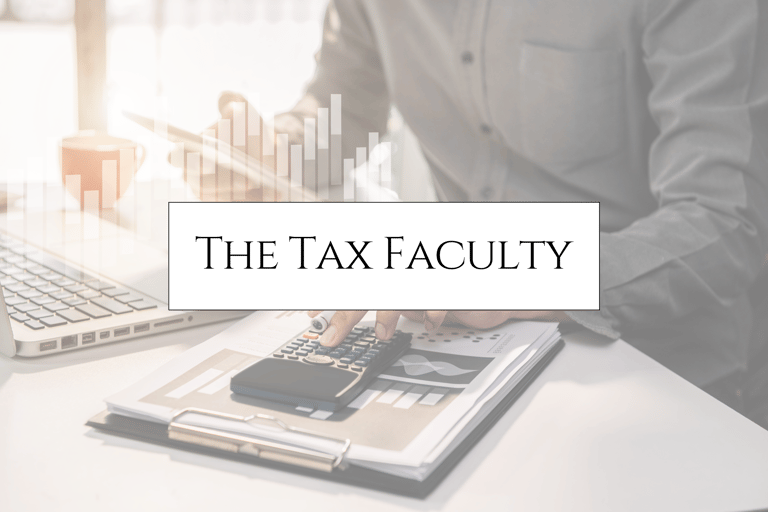

As with any offer, there are two ways in which the individual can respond. They can accept the offer, or reject it. HMRC allows a strict 60 days from the date of receipt of the opening correspondence by which the individual must respond with their decision whether to accept or reject the offer.
It is worth noting that by choosing not to respond to the opening correspondence, HMRC treat this as if the individual has rejected the offer, stating that “If we have not heard from you within 60 days after you receive our offer then we will treat this as a conscious decision not to accept our offer. We will begin a criminal or a civil investigation into the tax fraud we suspect you have committed.”
Given that there is a 60-day deadline by which the offer will expire, it is therefore incredibly important that full consideration is given to the offer at the earliest possible opportunity.
It is also worth pointing out that at this stage, HMRC will not provide details of the suspected tax fraud to the individual or their advisers. HMRC are giving the individual a chance to admit any tax fraud that they have committed and will not prompt the individual further.
As such, it is highly recommended that the individual conduct a thorough examination of their tax affairs with their Code of Practice 9 specialist. Having someone with the experience of such situations will enable the individual the best possible overview when deciding whether to accept or reject HMRC's offer.
4. Options When Responding to HMRC's Offer
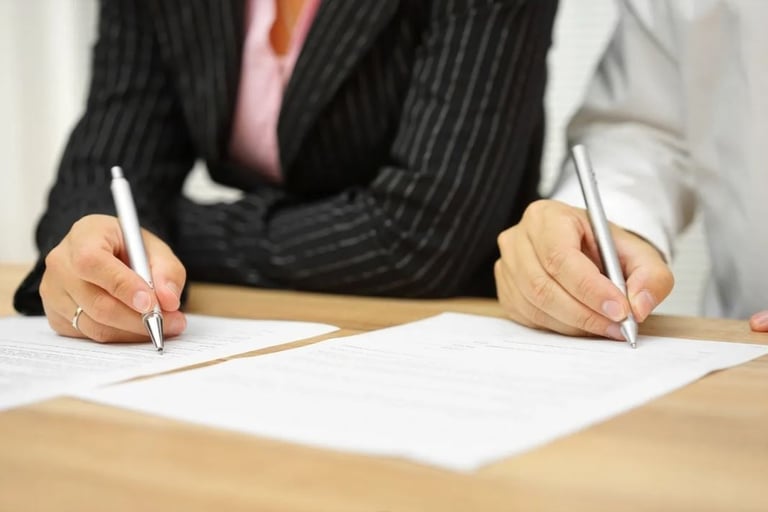

Sometimes rejecting HMRC's offer is the right thing to do
Where an individual is adamant that they have not committed tax fraud, then they are well within their rights to reject HMRC's offer.
As noted previously in this guide, HMRC only require a “suspicion” that the individual has committed tax fraud when issuing the opening correspondence and we will reinforce again here the point that HMRC themselves state in the Code of Practice 9 booklet that:
“We will keep an open mind to the possibility that there may be an innocent explanation for the suspected fraud, and we will treat you fairly and politely, and in accordance with the law.”
If the individual decides to reject the offer, it is advised that they work closely with their Code of Practice 9 specialist in order to provide a robust response to HMRC detailing why they are rejecting the offer.
Rejection of the offer does not mean that HMRC go away or close the investigation down, however providing a detailed response as to why the individual feels that it is not appropriate to accept HMRC's offer can go a long way to persuading HMRC that the individual has not in fact committed tax fraud.
HMRC will though most likely still commence their own investigation to ensure that their suspicions were incorrect, or indeed to find that the individual has committed tax fraud but decided not to admit to this when challenged.
As the individual has chosen to reject HMRC's offer, this will mean that they have lost the protection that HMRC offered against criminal proceedings being commenced. Should HMRC find any evidence of tax fraud being committed, they are within their rights to start criminal proceedings against in individual who has rejected the offer of entry into the Contractual Disclosure Facility.
It is therefore incredibly important that full consideration is given to the offer and whether this should indeed be rejected.
5. Rejecting HMRC's Offer
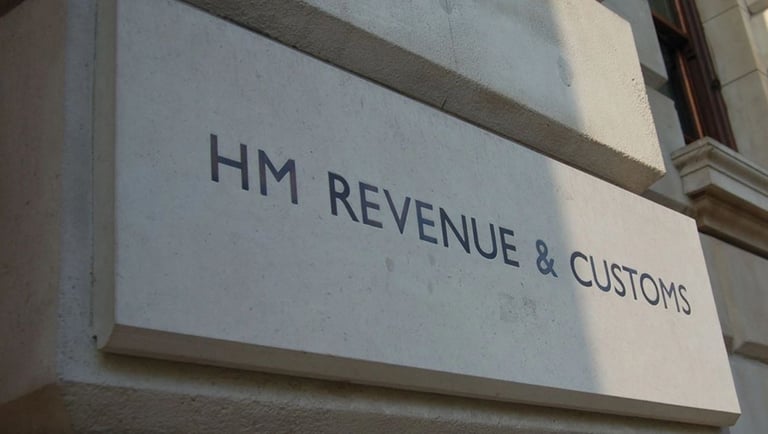

If, after due consideration and discussions with a specialist adviser, the individual wishes to accept HMRC’s offer of entering into the Contractual Disclosure Facility, they must inform HMRC of this decision in writing within 60 days of the receipt of the offer.
Within the acceptance of the offer, the individual must complete and return the forms which were enclosed within the opening correspondence. This response forms what is referred to as an Outline Disclosure.
This Outline Disclosure asks the individual a number of questions relating to the fraud which they are disclosing to HMRC. At this stage HMRC do not expect exact dates and figures, this is simply an outline of the events that happened and how the tax fraud was committed. The individual should include details of all deliberate and non-deliberate actions which have resulted in a lower amount of tax being paid.
For this exercise it is important that the individual distinguishes between the deliberate actions (those that caused tax fraud to be committed) and the non-deliberate actions (those that caused lower tax to be paid but were not deliberate actions). The forms have separate sections for deliberate and non-deliberate actions.
The importance of making this distinction comes into play when considering two aspects.
Firstly, HMRC have shorter statutory time limits by which they can assess and collect tax due as a result of non-deliberate actions when compared to the 20-year time limit for deliberate behaviour.
Secondly, HMRC can enforce higher rates of tax-based penalties where deliberate actions were taken which resulted in lower tax being paid then there should have been.
You can read more on the time limits that HMRC must work within and the penalties which HMRC can charge in our article linked here.
Taking this into account, it is very important that the individual discuss at length with their specialist adviser the actions that were taken which brought about each different underpayment of tax. This may make a huge difference in the total amount of tax due at the end of the Code of Practice 9 investigation.
Completing the Outline Disclosure so as not to prejudice the individual in the future and during the course of the Code of Practice 9 investigation is equally as important. This requires experience of the Code of Practice 9 process and the specifics of the tax involved. Again, HMRC recommend that a specialist Code of Practice 9 adviser be appointed to assist in this matter.
6. Accepting HMRC's Offer
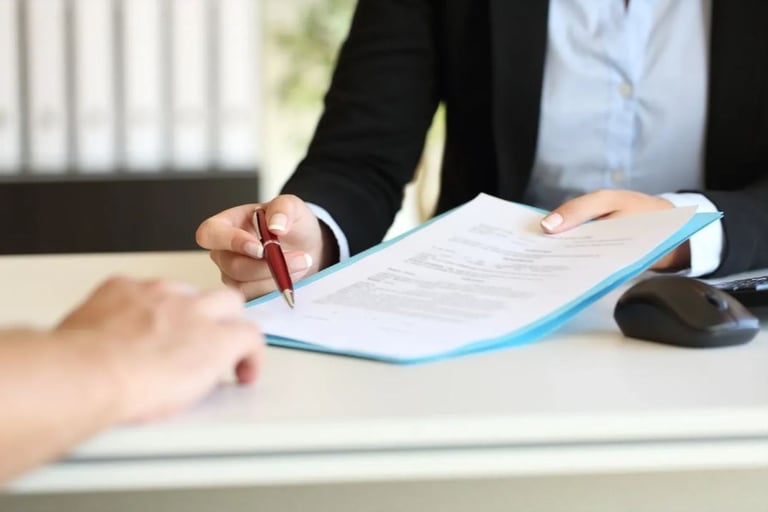

Once the Outline Disclosure is complete, this is then sent back to HMRC. The inspector who has responsibility for the investigation will review this Outline Disclosure against the research that they have conducted.
The inspector then has a decision to make as to whether they consider that the Outline Disclosure is acceptable and complete. If so, they will accept the Outline Disclosure and move on to the next phase of the investigation. If not, they will tell the individual that the they consider the Outline Disclosure to be incomplete.
If HMRC consider that the Outline Disclosure is incomplete and has not disclosed the full extent of the tax fraud that they suspect that individual of committing, they may decide to pursue that individual though a criminal investigation. It is therefore of the upmost importance that this Outline Disclosure is prepared carefully and accurately after in depth discussions with a Code of Practice 9 specialist.
The other option that HMRC have if they consider that the Outline Disclosure is incomplete is to continue to carry out an investigation using their civil powers. As HMRC would then believe that they have not received full cooperation from the individual in terms of telling HMRC everything at the first opportunity, it is likely that there will be a higher level of penalty charged at the end of the investigation.
For information on the penalties that HMRC can charge as a result of any additional tax being due, check out our handy guide linked here.
If HMRC decide to continue with their civil investigation by accepting the Outline Disclosure, it is then time to go through the process that will lead to the quantification of any additional tax that is due as a result of the individual’s deliberate actions (as well as any non-deliberate actions if appropriate).
In the minority of cases, HMRC may be able to agree with the individual the amount of additional tax and interest due from the Outline Disclosure alone. This will only happen in the most straightforward of cases and is in our experience a rare occurrence. For this to course to be taken, both HMRC and the individual will need to be in complete agreement on the amounts due and the behaviours exhibited by the individual.
Most of the time however this will not be a quick process. There are many stages to go through that can require a great deal of time and resource to complete.
7. After the Outline Disclosure is Completed
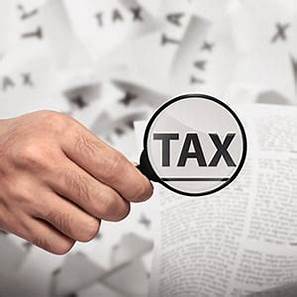

In most cases that require further investigation, HMRC will initially invite the individual and their advisers to what is referred to as an Opening Meeting.
The purpose of this meeting is for HMRC to gather as much information from the individual in relation to the tax fraud that they committed, along with any non-deliberate actions that brought about an underpayment of tax.
During these Opening Meetings, the HMRC inspector will have a script of questions that they will ask the individual and their advisers. There are usually hundreds of points and questions that the inspector will ask during the meeting, which will last a number of hours and can be incredibly mentally taxing for those unfamiliar with such discussions.
Some of these questions will be tailored to the circumstances of the tax fraud committed by the individual, designed with the objective of finding out everything that they can about the actions taken and how these actions caused a loss in tax to the Exchequer.
Once again, this is a crucial time to seek advice from an experienced Code of Practice 9 investigation specialist. These meetings can be very intimidating for an individual as they are in a formal setting and the HMRC inspectors will note everything that is said during the meeting, relying on the answers provided during the meeting for the rest of the investigation.
Having the experience of a Code of Practice 9 investigation specialist allows the individual to fully prepare for the meeting in order to ensure that they do not say or do anything that prejudices their position for the rest of the investigation.
Having the specialist attend the meeting also provides the experience required to make sure that the HMRC officers stay within the boundaries that they are allowed to operate, protecting the individual from any unnecessarily aggressive tactics should they need to.
During this Opening Meeting, the HMRC inspector will discuss the next part of the Code of Practice 9 investigation process. This will usually result in the commissioning of a Disclosure Report.
8. The Investigation Phase


This is an extensive report that the individual will provide to HMRC (usually written by the Code of Practice 9 specialist representing the individual) which provides the full details needed to explain the circumstances behind the fraud and enables the quantification of the tax due as a result of the tax fraud that was committed.
While the report must be certified by the individual to state that the content is their own, there will often be a meeting between the HMRC inspector and the Code of Practice 9 specialist to agree the “scope” of the Disclosure Report.
This “scope” is there so that all parties can come to an agreement as to what information and documentation is required so that the additional tax due can be accurately quantified. For example, this will include the duration of the tax fraud and which tax years will require consideration when quantifying the additional tax due.
Taking this further, it may be discussed how the HMRC inspector can be satisfied that the fraud was not taking place prior to the periods that the individual is claiming. This may take the form of the Code of Practice 9 specialist “testing” prior years to evidence that the fraud was not taking place in earlier years and including the results of these tests in the Disclosure Report.
HMRC themselves suggest that the following be included within the Disclosure Report:
• a brief business history
• a description of all tax irregularities (including any that were brought about by non-deliberate conduct) and how they arose
• quantification of all the irregularities
• information to show how you quantified the irregularities and make sure that nothing has been missed
• summaries of tax and/or duties, interest and penalties due
• a reconciliation of your irregularities figure with the summary of tax and/or duties
• a certified statement of worldwide assets and liabilities
• certificates of bank accounts and credit cards you operated
HMRC expect that the individual will work with their Code of Practice 9 specialist in order to complete the Disclosure Report. This means that they will make all documents and information available to the specialist as and when they require it to accurately complete the report. This process will take a number of months and can at time take years to complete, such is the importance and size of the task.
While the report is being written, HMRC may request meetings with the Code of Practice 9 specialist in order to ensure that adequate progress is being made and that the individual is continuing to cooperate with the process.
Should the HMRC inspector not be adequately satisfied that progress is being made, or has concerns that the individual may not be cooperating, they may decide to “take control” of the investigation. If this is the case, the HMRC inspector will conduct a full investigation which can be incredibly intrusive and time consuming for the individual.
If this does happen, the individual will have a high likelihood of suffering a higher level of tax geared penalties becoming payable at the conclusion of the investigation, as HMRC will not consider fully reducing the penalties for the individual cooperating by “telling, helping and giving”.
Given that a Code of Practice 9 investigation invariably deals with deliberate behaviour, the difference between cooperating fully and not cooperating at all may mean that the individual could end up paying a penalty that is as much as 100% of the tax due as a result of the fraud that was committed.
This further highlights the relevance of the advice that HMRC give in terms of recommending that individuals seek representation from an experienced Code of Practice 9 specialist. Having an experienced adviser to assist in the preparation of the Disclosure Report will ensure that the individual does not sleepwalk into a problem that could result in them pay double the amount of penalty as they could have had they sought advice early.
9. The Disclosure Report


Once the Disclosure Report is complete, this will be submitted to HMRC alongside the evidence that was relied upon to quantify the additional tax due.
The HMRC inspector, with assistance from a trained team of HMRC investigators, will then test the accuracy of the report against the suspected tax fraud and the details provided on the Outline Disclosure and during the Opening Meeting.
If the investigation team within HMRC are satisfied that the Disclosure Report is correct and complete, then they will move to the settlement phase of the investigation.
When making a settlement with HMRC, there may be scope for negotiation on the final figures of additional tax and the amount of penalty chargeable in the circumstances. The Code of Practice 9 specialist should discuss this with the individual prior to agreeing any settlement figures.
As part of the settlement, HMRC will request that the following be provided:
• a certificate of bank and credit card accounts operated;
• a statement of personal assets and liabilities; and
• a certificate of full disclosure.
As well as these documents, HMRC will also expect that the individual hold up their end of an important part of the Contractual Disclosure Facility, that they will have ceased all tax irregularities and that they will not commit tax fraud in the future.
Should the individual not hold up this part of the offer, it is certain that HMRC will deem it appropriate to enforce tougher financial penalties and possibly look at taking forward a criminal investigation against the individual.
It may also be that HMRC are not fully satisfied by the Disclosure Report that is submitted, however this should not be the case if the report is prepared by an experienced Code of Practice 9 specialist. Communication between the specialist and HMRC throughout the investigation should mean that HMRC receive what they are expecting.
Should HMRC not be satisfied, they may seek to investigate further to make sure of the accuracy of the additional tax due as result of the investigation.
10. Actions Following the Submission of The Disclosure Report


At the end of the investigation it is expected that the individual will (to the best of their ability) pay HMRC an amount to cover the additional tax, interest and penalties due as a result of the tax fraud as well as any additional tax brought about by non-deliberate behaviour.
An experienced Code of Practice 9 investigation specialist will be able to assist the individual should they require additional time to pay the amounts due and this should be discussed well in advance of the final settlement.
It is important that the individual views the conclusion of the Code of Practice 9 investigation as drawing a line in the sand and moving away from their past behaviours. By owning up to their past tax fraud, they can move forward safe in the knowledge that HMRC have accepted their admissions and concentrate on getting things right in the future.
We must also note that as a Code of Practice 9 investigation may include penalties for a deliberate tax irregularity, the individual may also find themselves within HMRC’s ‘managing deliberate defaulters’ initiative.
If this is the case then HMRC may publish the name of the individual, their address, the time during which the tax fraud took place, the total amount of tax due as a result of the tax fraud, the total penalties charged and other information on the HMRC website.
A link to this page can be found here: https://www.gov.uk/government/publications/publishing-details-of-deliberate-tax-defaulters-pddd/current-list-of-deliberate-tax-defaulters
There may be circumstances where negations can take place in order for HMRC not to publish these details. Discussions should be held with the individual, their Code of Practice 9 specialist and HMRC to see if this course of action may be avoided.
11. Finalising the Code of Practice 9 Investigation


If you have received a letter from HMRC informing you that you are being placed under a Code of Practice 9 investigation, please contact us at the earliest opportunity.
Our dedicated team of experts are ex-senior HMRC Tax Professionals with decades of experience in both conducting Code of Practice 9 investigations and in defending our clients from these exact same investigations.
As well as assisting individuals with Code of Practice investigations, we have a history of helping accountants and other private practices by representing their clients when they fall under investigation.
We have a strict "no poach" promise and your client remains your client throughout. We simply deal with the investigation allowing you to do what you do best - providing a first-class service to your clients.
Contact us today on freephone 0800 0016 878 for a free consultation on all tax issues, or fill out the handy form below and we'll get back to you as soon as possible.
Alternatively, you can email us at info@thetaxfaculty.co.uk or complete the handy form below.
(Please note, non-UK callers may need to call 0207 101 3845 if your line cannot connect to our 0800 number)
How The Tax Faculty Can Assist With Cop9 Investigations


Expertise You Can Trust:
Our team of seasoned tax professionals at The Tax Faculty LLP boasts years of experience in navigating the intricacies of tax laws. We stay on top of the latest updates to provide you with accurate and reliable guidance.
Tailored Solutions for You:
Every individual's financial situation is unique. Our personalised approach ensures that we understand your specific circumstances, allowing us to optimise your self-assessment tax return filing and maximise your savings.
Efficiency and Accuracy:
We prioritise efficiency without compromising accuracy. Our streamlined processes and attention to detail mean that your tax return will be prepared meticulously, reducing the risk of errors that could lead to penalties.
Why Choose The Tax Faculty LLP?

How We Work
Step One
We start with a completely free and confidential consultation. This can take place by way of a meeting (over the telephone, video meeting or in person) or by way of email. We get to know you, your circumstances and your requirements.
Step Two
We analyse your situation and your needs in order to identify how best we can assist you. This might involve filing tax returns on your behalf with HMRC, providing advice on reducing your tax liability now and in the future, or a combination of such work.
Step Three
Should you wish to engage us, we would provide you with a fixed fee quote for the work required to solve all of your tax worries. We then complete our work with the highest levels of professionalism, keeping you updated at every stage and taking the stress away.
Contact Us
Contact us today on freephone 0800 0016 878 for a free consultation on all tax issues, or fill out the handy form below and we'll get back to you as soon as possible.
Alternatively, you can email us at info@thetaxfaculty.co.uk or complete the handy form below.
(Please note, non-UK callers may need to call 0207 101 3845 if your line cannot connect to our 0800 number)
Feel free to contact us through WhatsApp - we accept calls and messages.
Simply click the WhatsApp button below:


